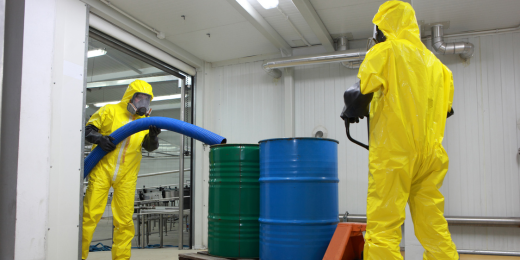Getting The Reclaim Waste To Work
Getting The Reclaim Waste To Work
Blog Article
Reclaim Waste Things To Know Before You Get This
Table of ContentsWhat Does Reclaim Waste Do?8 Simple Techniques For Reclaim WasteReclaim Waste - An OverviewReclaim Waste for BeginnersLittle Known Facts About Reclaim Waste.
Check out the types, events, and types of liquid waste. Domestic sewer waste describes the waste and items from a household septic tank. This sort of waste is produced by humans in homes, colleges, and other structures. This only includes septic storage tanks that have a drainpipe area. The appropriate monitoring and disposal of residential sewage waste need fluid waste to be transferred to a sewer treatment plant where the correct techniques and equipment are related to cleanse and throw away waste.
Industrial waste often consists of possible threats, such as flammable products or a mix of fluid and solid waste items, and calls for a much more advanced and thorough disposal process. The disposal of industrial waste typically includes the purification of waste prior to transportation to guarantee secure and proper disposal. Hazardous waste is produced from results and drainage of industrial processes and production.
This type of waste can not utilize the very same sewage administration transport or procedures as septic or commercial liquids. The hazardous waste monitoring procedure calls for the inspection and screening of liquid waste prior to it undergoes the disposal process (liquid waste removal). Drainage waste is the liquid waste that originates from drainage and excess stormwater in very populated locations or cities
Runoff waste can cause contamination and flooding if not managed properly. Discover more about sewage system cleaning and waste monitoring. Guaranteeing correct waste administration can avoid disasters and minimize environmental harm. Both individuals in property settings and professionals in business or production markets can take advantage of recognizing the procedures and guidelines of liquid waste management.
The Reclaim Waste Diaries
Get in touch with PROS Solutions today to find out about our waste management and disposal solutions and the proper methods to care for the fluid waste you produce.
(https://www.intensedebate.com/people/reclaimwaste1)Do you recognize what occurs to your water when you disengage, purge the commode or drain pipes the washing maker? No? Well, it deserves recognizing. This so-called 'wastewater' is not only a vital source however, after treatment, will be launched to our land, waterways or the ocean. Made use of water from bathrooms, showers, baths, cooking area sinks, laundries and commercial procedures is called wastewater.

water utilized to cool machinery or clean plant and devices). Stormwater, a kind of wastewater, is runoff that moves from agricultural and metropolitan areas such as roof coverings, parks, gardens, roadways, courses and rain gutters right into stormwater drains pipes, after rain. Stormwater flows unattended straight to regional creeks or rivers, ultimately getting to the ocean.
The Definitive Guide for Reclaim Waste
In Queensland, a lot of wastewater is treated at sewage therapy plants. Wastewater is transported from residential or industrial sites through a system of sewers and pump terminals, referred to as sewerage reticulation, to a sewage treatment plant. Regional federal governments construct, preserve and run most sewer therapy plants. Operators are licensed under the Environmental Management Act 1994 to release cured wastewater at an appropriate ecological requirement right into waterways.
The Division of Natural Resources recommends city governments concerning handling, operating and preserving sewerage systems and therapy plants. In unsewered locations, neighborhood federal governments might need homeowners to set up individual or family sewer therapy systems to deal with residential wastewater from toilets, kitchen areas, bathrooms and laundries. The Department of Natural Resources authorises making use of home systems when they are shown to be efficient.
In some brand-new neighborhoods, treatment of some stormwater to eliminate clutter, sand and gravel has begun making use of gross contaminant catches. Wastewater treatment happens in 4 stages: Gets rid of solid matter.
Makes use of tiny living organisms understands as micro-organisms to damage down and remove staying liquified Visit Your URL wastes and fine fragments. Micro-organisms and wastes are integrated in the sludge.
A Biased View of Reclaim Waste
Nutrient removal is not available at all sewage therapy plants because it calls for costly specialist devices. Clear liquid effluent generated after treatment might still consist of disease-causing micro-organisms - liquid waste disposal melbourne.

Most wastewater flows right into the sewage system. Under the Act, neighborhood governments carry out approvals and permits for eco relevant activities (Ages) including wastewater launches that may have a regional influence.
The smart Trick of Reclaim Waste That Nobody is Talking About
Tracking supplies accurate details regarding water quality and can confirm that permit problems are being satisfied. The information obtained with surveillance gives the basis for making water top quality decisions.
Report this page